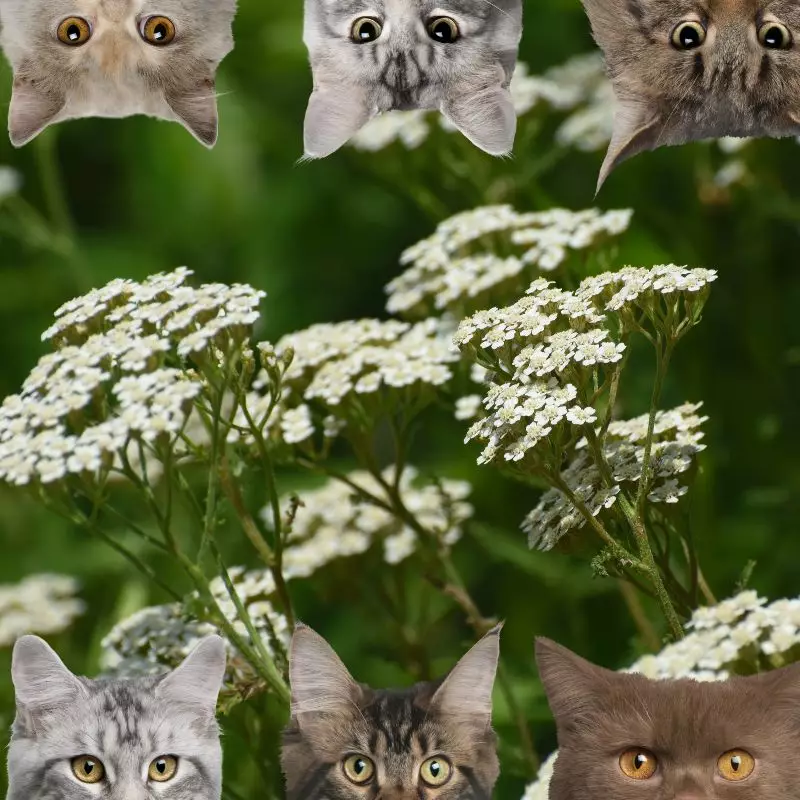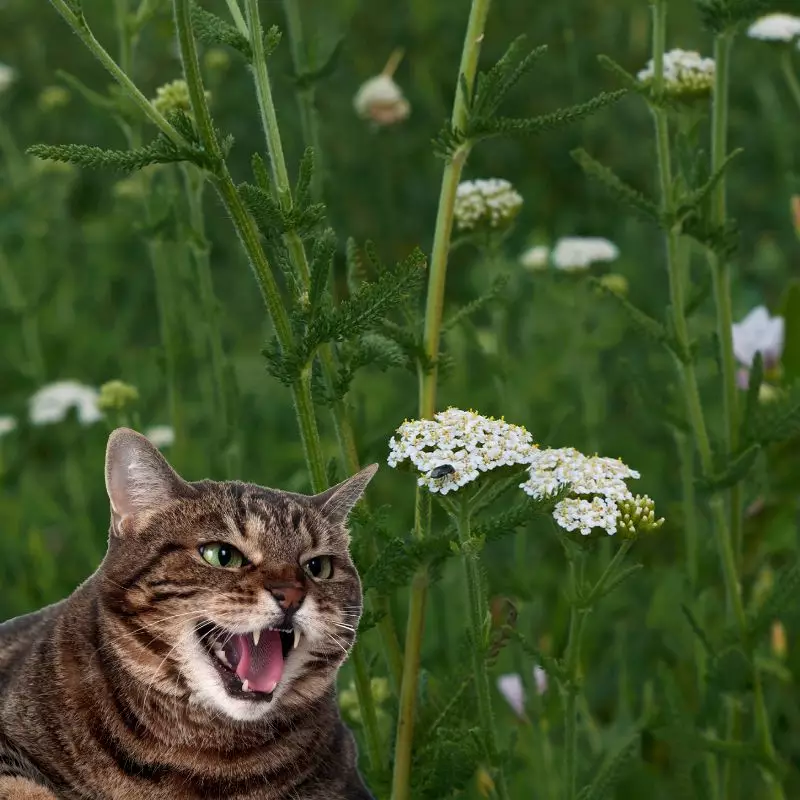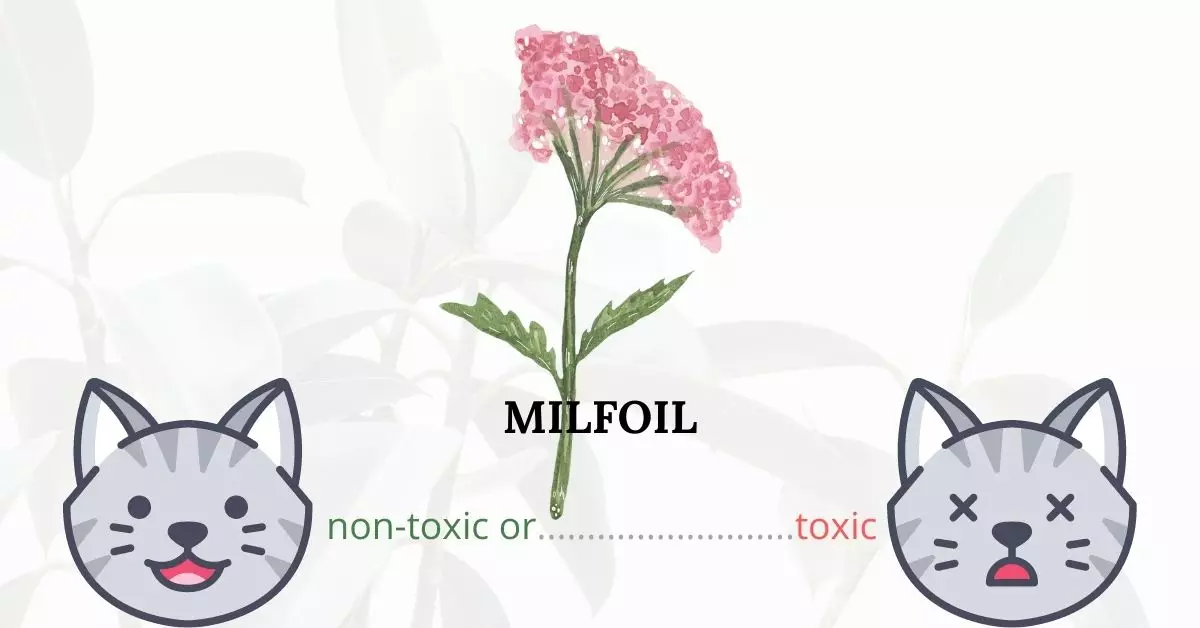Milfoil, also known as yarrow, can be harmful to cats due to its toxin content. Specifically, milfoil contains Glyco-alkaloids such as achilleine and moschatine, hydrolyzable tannins, and volatile oils. These compounds, particularly achilleine, have been found to have certain medicinal properties in humans. For instance, achilleine has hemostatic abilities, meaning it can reduce clotting time, and it was even once used as a quinine alternative for Malaria prophylaxis. However, when it comes to our feline friends, these very properties can pose significant risks.
This article is a culmination of insights and research conducted in collaboration with a team of experienced DVMs (doctors of veterinary medicine). Their expertise ensures that the information provided here is accurate and up-to-date concerning the potential risks associated with various plants, including milfoil, and their effects on cats. Additionally, our research has been supplemented by information from high-authority websites such as ASPCA and PetMD to ensure a comprehensive understanding of the subject matter.
Clinical Signs of Milfoil or Yarrow Poisoning in Cats

While milfoil or yarrow poisoning is rare, largely due to the plant’s naturally harsh flavor from its tannins which deter animals from consuming it, cats that do ingest a significant amount might exhibit a range of symptoms. Understanding the root causes of these symptoms provides insights into the plant’s effect on our feline companions:
- Drowsiness: This might be caused by the alkaloids in milfoil, which can act as a sedative in higher concentrations. Once ingested, these compounds can affect the central nervous system, leading to decreased activity or drowsiness in cats.
- Lethargy: Lethargy could be a consequence of the general distress that the toxins cause within the cat’s body, leading to decreased energy and willingness to move.
- Frequent Urination: Milfoil has diuretic properties, which means it can increase urine production. If a cat ingests a notable amount, it might experience an increased need to urinate.
- Diarrhea and Vomiting: These are general symptoms of gastrointestinal upset. The Glyco-alkaloids and tannins present in milfoil can irritate the cat’s stomach and intestines, leading to these symptoms.
- Skin Irritation: Contact with milfoil’s volatile oils can sometimes cause skin irritation. If a cat has been rolling in or has had prolonged contact with the plant, they might show signs of itchiness or redness on their skin.
While a lethal outcome is improbable due to the quantity of milfoil a cat would need to ingest, it’s always essential to monitor any cat that has been in contact with the plant and seek veterinary advice if symptoms are observed.
First Aid and Treatment of Milfoil or Yarrow Poisoning in Cats

Milfoil toxicity is usually treated symptomatically. The cat’s symptoms will be managed by the veterinarian when they arise. He’ll make sure the cat stays hydrated and doesn’t eat any more of the plant. In cats who are allergic to ragweed and allied plants in the Asteraceae or Compositae family, milfoil may cause increased or more severe symptoms.
The veterinarian’s treatment routine may involve intravenous fluid therapy, vomit induction, giving activated charcoal, and performing gastric lavage. Necessary medications to ease your cat’s symptoms will be also given.
Recovery from Milfoil or Yarrow Poisoning in Cats

Milfoil poisoning rarely results in death and the majority of the cats will fully recover once all of the plant’s harmful substance has been ejected from their bodies. There should be no long-term effects from the poisoning however it can cause miscarriage in pregnant cats. Mother cats who have recently consumed milfoil should not be permitted to milk their kittens.
Prevention of Milfoil or Yarrow Poisoning in Cats
Remove all milfoil plant in your gardens and keep your home cat-friendly as much as possible. Staying indoors is the best way for your cats to minimize the risk of exposure to milfoil and other poisonous plants that may be growing within the vicinity og your residence.
If you love plants but have cats at home, check out these lists:





